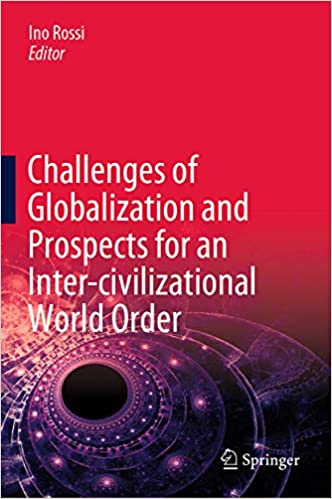“Exceptionally diverse and comprehensive… [this] is certain to become an essential reference work on the economic, moral, human rights and civilizational aspects of globalization.” Daniel Chirot, University of Washington
“…a much-needed comprehensive, updated, and non-Western-centric introduction to the origins, dynamics, and latest trends of globalization as seen from the perspectives of Global North and South.” Ho-fung Hung, Johns Hopkins University
“..a timely and solid overview of the key theoretical and methodological challenges faced across the social sciences as we seek to understand the possible futures of globalization.” Roberto Patricio Korzeniewicz, University of Maryland
“Ino Rossi has brought together a range of authors covering multiple aspects of our current condition. This diversity of engagements is what we need to sort out our major challenges.” Saskia Sassen, Columbia University
"It is the best collection of studies on ecological globalization, latest impact on the Global South, millennia ascent of individual rights, and alternative designs of the future world order." Alvin Y. So, Hong Kong University of Science and Technology
This is a must-read volume on globalization in which some of the foremost scholars in the field discuss the latest issues. Truly providing a global perspective, it includes authorship and discussions from the Global North and South, and covers the major facets of globalization: cultural, economic, ecological and political. It discusses the historical developments in governance preceding globalization, the diverse theoretical and methodological approaches to globalization, and analyzes underdevelopment, anti-globalization movements, global poverty, global inequality, and the debates on international trade versus protectionism. Finally, the volume looks to the future and provides prospects for inter-civilizational understanding, rapprochement, and global cooperation. This will be of great interest to academics and students of sociology, social anthropology, political science and international relations, economics, social policy, social history, as well as to policy makers.











